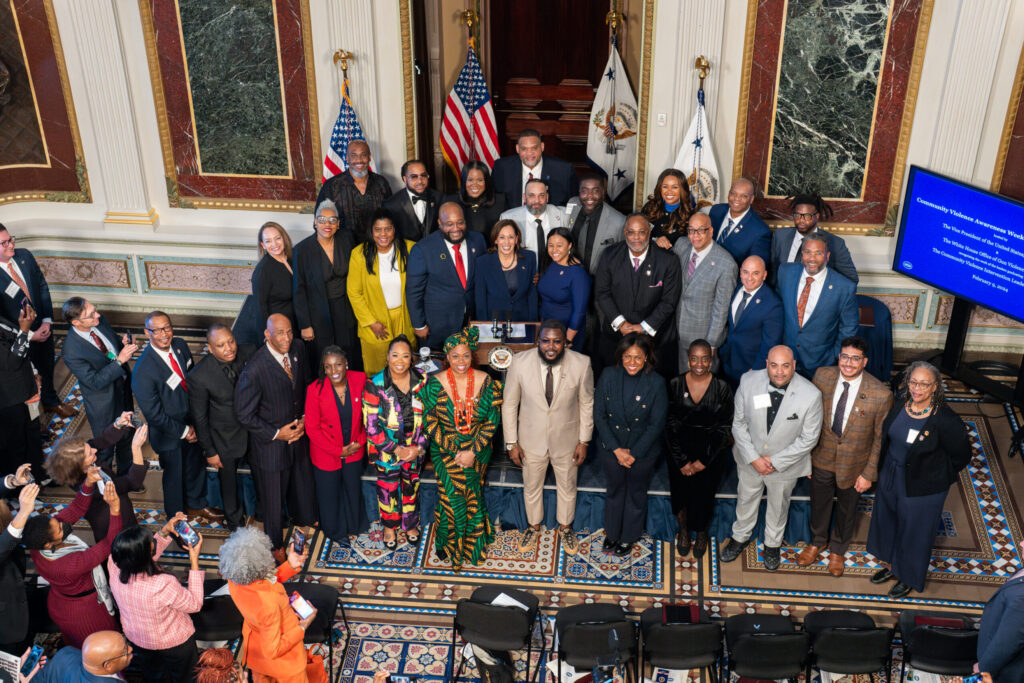Aug 2023
Predicting and Preventing Gun Violence: An Experimental Evaluation of READI Chicago – Working Paper
The findings from the READI study are the focus of this academic paper.
Gun violence is the most pressing public safety problem in American cities. We report results from a randomized controlled trial (N = 2, 456) of a community-researcher partnership called the Rapid Employment and Development Initiative (READI) Chicago. The program offered an 18-month job alongside cognitive behavioral therapy and other social support. Both algorithmic and human referral methods identified men with strikingly high scope for gun violence reduction: for every 100 people in the control group, there were 11 shooting and homicide victimizations during the 20-month outcome period. Fifty-five percent of the treatment group started programming, comparable to take-up rates in programs for people facing far lower mortality risk. After 20 months, there is no statistically significant change in an index combining three measures of serious violence, the study’s primary outcome. Yet there are signs that this program model has promise. One of the three measures, shooting and homicide arrests, declines 65 percent (p = 0.13 after multiple testing adjustment). Because shootings are so costly, READI generates estimated social savings between $182,000 and $916,000 per participant (p = 0.03), implying a benefit-cost ratio between 4:1 and 20:1. Moreover, participants referred by outreach workers—a pre-specified subgroup—show enormous declines in both arrests and victimizations for shootings and homicides (79 and 43 percent, respectively) that remain statistically significant even after multiple testing adjustments. These declines are concentrated among outreach referrals with higher predicted risk, suggesting that human and algorithmic targeting may work better together.

Economic Club of Chicago- Chicago’s Safety Snapshot: Issues and Opportunities
These slides were presented by the Crime Lab at a forum hosted by the Economic Club and Commercial Club of Chicago.

Violence Reduction Dashboard

Webinar: Overview of the City of Chicago’s Violence Reduction Dashboard
Launched in May 2021 by the City of Chicago, with design and technical support from the Crime Lab, the Dashboard is a first-of-its-kind comprehensive tool that allows unfettered public access to city violence trends categorizable by victim type, date, and geographic area.

Machine Learning Can Predict Shooting Victimization Well Enough To Help Prevent It
This National Bureau of Economic Research Working Paper shows that shootings are predictable enough to be preventable.
Latest Updates
Chattanooga Police Chief John Chambers Completes University Of Chicago Crime Lab’s Policing Leadership Academy
Chattanooga Police Department Chief John Chambers graduated from the University of Chicago Crime Lab’s Policing Leadership Academy, an education program dedicated to reducing violent crime and improving police effectiveness.

Vice President Kamala Harris Recognizes the CVILA at White House Ceremony

Chicago Police Make an Arrest in Only 20 Percent of Fatal Shootings
The Trace’s Rita Oceguera and Justin Agrelo highlight only 20% of fatal shootings in Chicago result in an arrest. Philip Cook, a professor emeritus of public policy and economics at Duke University, has been working with the University of Chicago’s Crime Lab to examine clearance rates and has noted a sharp decline in homicide clearance rates over the years.

